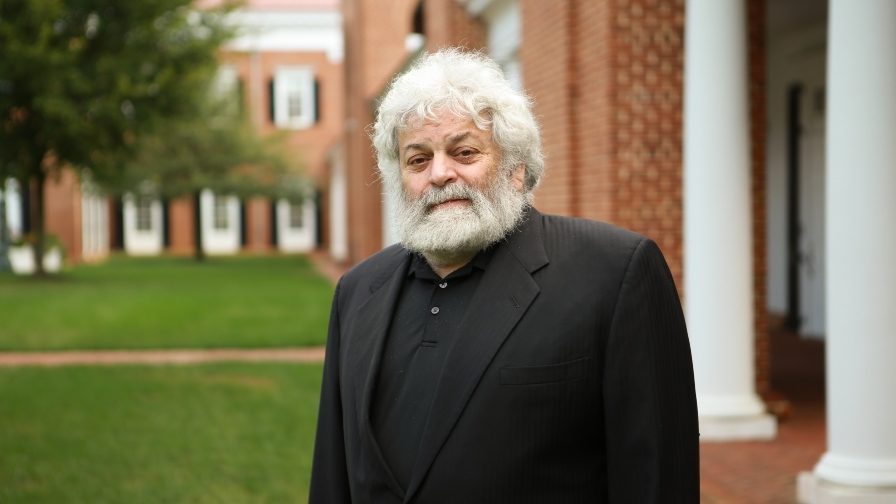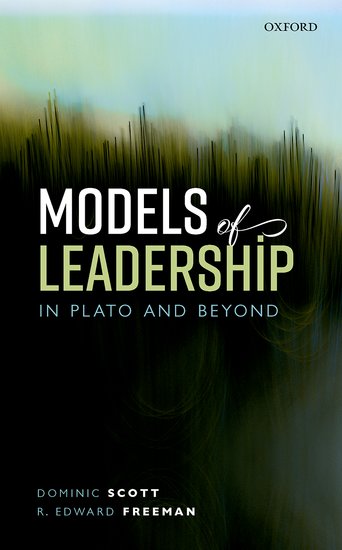
New Book Co-authored by UVA Darden Professor Details Plato’s Enduring Leadership Lessons
By Dave Hendrick
What can the modern business leader learn from the teachings of the Greek philosopher Plato? More than one might think.
In the new book, Models of Leadership in Plato and Beyond (Oxford University Press, 2021), University of Virginia Darden School of Business Professor Ed Freeman and University of Oxford Professor Dominic Scott detail Plato’s surprising relevance to the study and practice of modern leadership, and offer an accessible guide to incorporating the philosopher’s enduring wisdom into practice. 
“Plato wrote extensively on leadership, putting forth notions of the ideal leader, their training and what kind of leadership should be avoided,” said Freeman. “While his focus was the political leadership of the era, our contention is the great thought leader’s teachings carry over to other spheres, as well; notably business.”
“Athens in the fifth century B.C., when Plato was born, was a place of both extraordinary innovation and incredible tumult,” said Scott. “Plato witnessed leadership at its best and its worst, and his writings show the remarkable diversity in what may be involved in effective leadership.”
While Plato’s writing can be intimidating for modern readers, Freeman and Scott show the accessibility of his leadership models, which the philosopher illustrated using the examples of the shepherd, the doctor, the navigator, the artist, the teacher, the weaver and the sower.
For each model, the authors consider Plato’s intents, and use an example of both a political and business leader to further dissect the application.
The navigator, for instance, steers a company through a period of difficult unpredictability. The authors consider this unique skill, how it may be acquired and from whom. They use Frederick Douglass’ efforts as a leader of the antislavery movement and confidante of Abraham Lincoln and AT&T executive Arch McGill’s work to transform the former monopoly into a more competitive enterprise as case studies in the political and business realms, respectively. In each case, parallels to modern business leadership are explicit. Other case studies include lessons drawn from Nelson Mandela, Marie Curie and former PepsiCo CEO Indra Nooyi, among others.
Plato’s work is surprisingly clear on defining leaders and leadership, a topic with “almost endless theoretical and fundamental explanations,” the authors write. In a chapter discussing the philosopher’s relationship to dominant modern leadership models, the authors note the degree to which ethics and values are key to Platonic conceptions of leadership, contrary to the omission of those traits in much of the historical field of leadership studies.
Freeman, who first detailed the concept of stakeholder theory in his 1984 book Strategic Management: A Stakeholder Approach, examines the overlap between aspects of Plato’s models and stakeholder-minded leadership.
The authors leave readers with clear takeaways on the exercise of modern leadership in all of its complexities, steadfastly avoiding the appeal of a single formula while harkening back to the enduring lessons of one of the world’s great thinkers.
Models of Leadership in Plato and Beyond is currently available for order from Oxford University Press.
The University of Virginia Darden School of Business prepares responsible global leaders through unparalleled transformational learning experiences. Darden’s graduate degree programs (MBA, MSBA and Ph.D.) and Executive Education & Lifelong Learning programs offered by the Darden School Foundation set the stage for a lifetime of career advancement and impact. Darden’s top-ranked faculty, renowned for teaching excellence, inspires and shapes modern business leadership worldwide through research, thought leadership and business publishing. Darden has Grounds in Charlottesville, Virginia, and the Washington, D.C., area and a global community that includes 18,000 alumni in 90 countries. Darden was established in 1955 at the University of Virginia, a top public university founded by Thomas Jefferson in 1819 in Charlottesville, Virginia.
Press Contact
Molly Mitchell
Associate Director of Content Marketing and Social Media
Darden School of Business
University of Virginia
MitchellM@darden.virginia.edu





